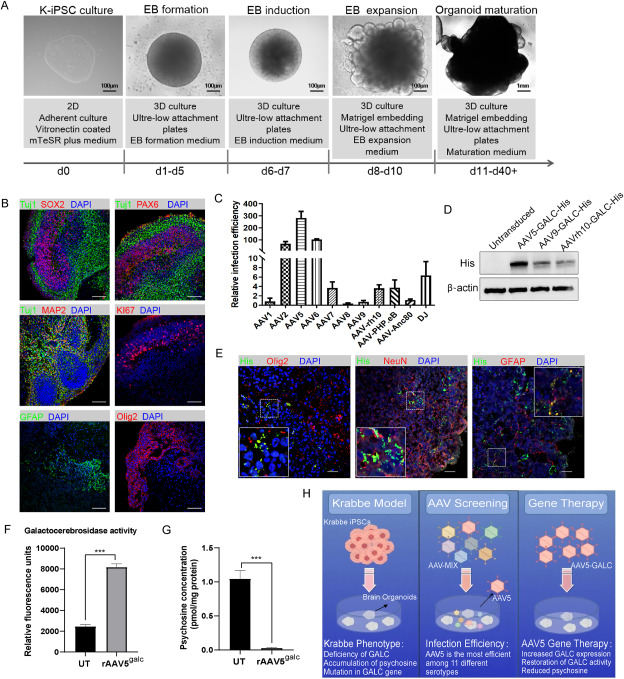
Identification of AAV serotypes for gene therapy in Krabbe iPSCs-derived brain organoids


Krabbe disease, also known as globoid cell leukodystrophy, is a rare lysosomal storage disorder. It is primarily caused by mutations in the GALC gene on chromosome 14q31, leading to GALC enzyme deficiency in lysosomes. This results in the accumulation of toxic substrate psychosine in the nervous systems.1 Currently, hematopoietic stem cell transplantation is the only available treatment, offering only a delay in neurological deterioration. Gene therapy, particularly using recombinant adeno-associated viruses (AAVs), shows promise for treating genetic diseases by introducing functional genes into target cells.2
